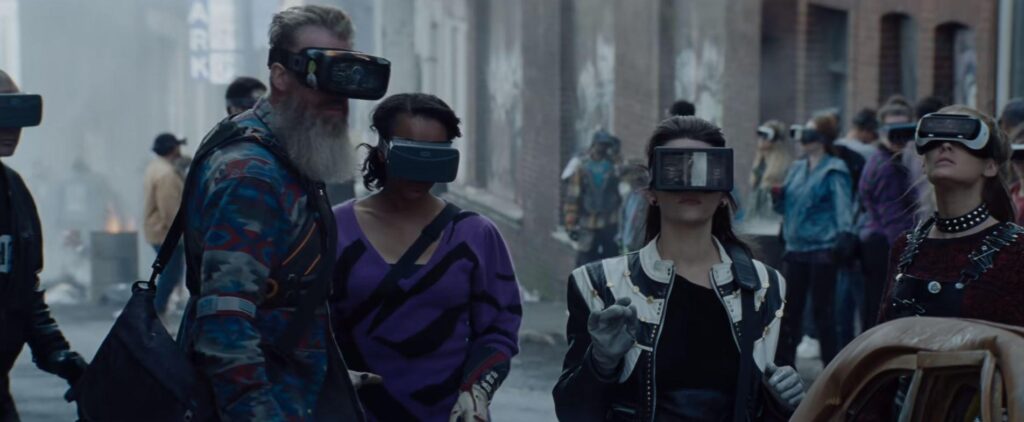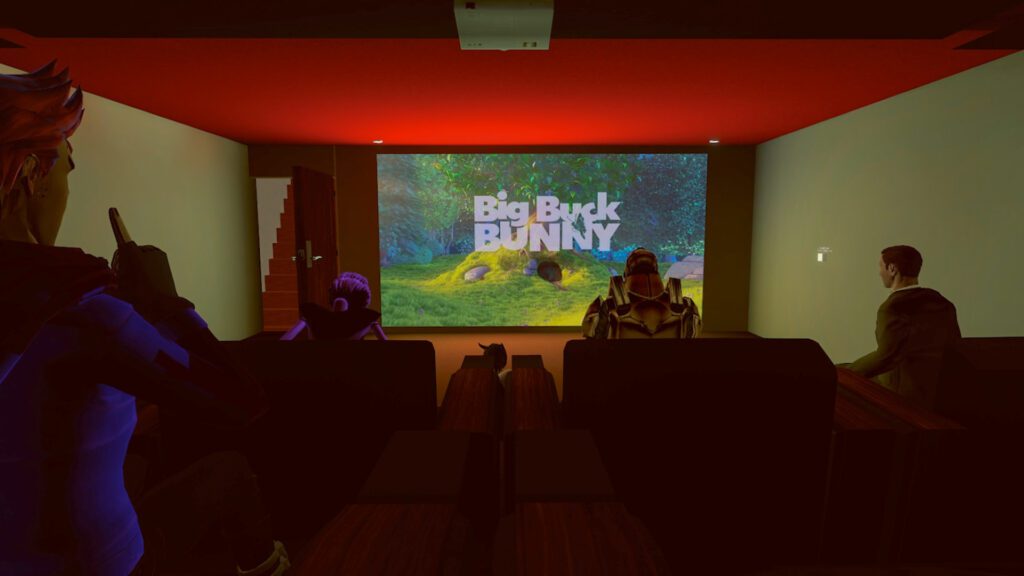A concept once confined to the speculative realms of science fiction, the metaverse is now a reality, bringing a new avenue for the future of human interaction, entertainment, shopping, and more. Even though the metaverse gaming’s market cap was “only” around US$36 billion last year, it is projected to grow to over US$700 billion by the end of 2027 – less than five years from now!
But do you know who is the creator of the metaverse as a concept? This is what you will learn in this article. You will also see what exactly the metaverse entails, some of its key guiding principles, and how it will affect our lives in the future.
Have a good read!
Who is the creator of the metaverse as a concept?
The concept of the metaverse, as we know it today, has a fascinating origin and traces back to the imaginative mind of Neal Stephenson. Renowned for his contributions to the science fiction genre, he introduced the term “metaverse” in a novel titled “Snow Crash”, which was published in 1992.
Within the story, Stephenson portrayed the metaverse as a sprawling parallel world, a space where the boundaries between the material and virtual worlds became meaningless. To escape the harshness of real life, some people decided to fully immerse themselves into the metaverse – portrayed as a dystopian world where buildings tower over people as far as the eye can see. Escapees could then interact with other people through avatars and explore a diverse web of interconnected virtual environments.
As you can see, Stephenson’s pioneering depiction laid the foundation for the modern rendition of the metaverse, which rejects the dystopian notion in favor of a more delightful one. After all, our current technology allows for a variety of activities within this virtual realm as we’ll see later in the article.
The metaverse in popular culture
The idea of a vast, but intertwined digital realm has been explored and depicted in various media types over the years, with some occurrences happening even before Stephenson’s futuristic vision.
“Ready Player One”, a book written by Ernest Cline and published in 2011, further disseminated the concept of the metaverse. His creation depicted a dystopian where people chose to spend most of their time in the OASIS, the book’s metaverse, to ignore the hardships of real life. Cline’s creation later received a film adaptation directed by Steven Spielberg – and was teeming with hundreds of easter eggs and references to the geek culture.

“Tron”, a movie released in 1982, also envisions an early concept of the metaverse, showing characters entering and interacting within virtual worlds. “ReBoot”, an animated series released in 1994, expands on the idea by adding sentient computer programs living in a digital environment, entities akin to autonomous AI agents.
Moving into the gaming sphere, titles like Habbo provided an early glimpse into the metaverse concept with its players personalizing digital avatars and interacting with other people in virtual spaces, except in 2D. More recently, games like Roblox, Minecraft, and even Fortnite serve as a proof-of-concept for the metaverse – even if a primitive one – by allowing creators to develop worlds collaboratively and share them with other people.
But what is the metaverse after all?
At its core, the metaverse represents a collective virtual world, an expansive space where people can interact, build communities, play, and create memorable experiences with other people. It’s also filled with different, but interconnected virtual worlds – each with its own unique set of rules, jaw-dropping possibilities, and digital environments – through which users can navigate seamlessly with their avatars.
Thanks to our technological advances over the last few decades, the combination of the internet and immersive technologies, like virtual reality (VR) and augmented reality (AR), has enabled the existence of the metaverse. Sure, we still have a long road to go, but what we’re seeing so far was unthinkable 5 years ago. Can you imagine what the future holds?

What are the guiding principles of the metaverse?
With its grand vision, the metaverse follows a set of principles that shape its development and evolution:
- Interconnectivity: ideally, transitioning from one digital realm to another should be seamless, no matter how different they are from each other;
- User-centric design: focusing on creating engaging experiences tailored to individual preferences, the metaverse has the end-user as the focus of its design practices. This approach fosters an environment where intuitive interfaces and personalized interactions are the norm, not the exception;
- Immersive experiences: as the platform tries to eliminate the barriers between the material and the digital world, nailing immersion is a must. Through technologies like VR, AR, and haptic feedback, the experience feels much more realistic, which greatly enhances immersion and makes experiences more memorable;
- Decentralization: another cornerstone of the metaverse relates directly to the ownership of digital assets. This is why technologies like blockchains and NFTs (non-fungible tokens) go hand in hand with the metaverse, enabling its users to claim actual ownership of virtual goods like property and art. However, keep in mind that not all metaverses are decentralized – for instance, Roblox’s and Meta’s aren’t while Sandbox and Decentraland are;
- Open collaboration: this environment thrives on open standards and collaborative efforts to provide the best experience for its users. Also, open-source development is highly encouraged, providing incredible tools free of charge for all to use;
- Governance and data sovereignty: ideally, the metaverse will ensure that rules, regulations, and decision-making processes are fair and transparent. Also, every user will have a voice in shaping the platform’s policies and total control over their personal data;
- Persistent worlds: unlike most traditional games, the metaverse will provide persistent digital realms where the landscape evolves over time. This offers a never-ending, but ever-changing environment that encourages long-term engagement and fosters deeper connections between users and their favorite digital realms.
How will the metaverse impact our lives?
The metaverse goes beyond a mere tool for entertainment and communication: it has the potential to transform various aspects of our lives. As progress in technologies like extended reality, AI, blockchains, and related areas continues, the lines between the digital and physical realms will get increasingly blurred.
This will give rise to new forms of doing our regular, perhaps boring activities:
- In the field of education, lectures could be much more dynamic and immersive, capturing the students’ attention for longer periods and making their experiences more memorable. Additionally, VR simulations of archeological sites, historical civilizations, scientific experiments, and the wonders of space could provide much more engaging learning experiences for students;
- It could also revolutionize how we as a society perceive remote work. The recent COVID-19 pandemic has shown that working remotely is perfectly viable for many industries, bringing with it a swathe of benefits. The metaverse could help bridge some of the inherent disadvantages, like increased feelings of loneliness, by providing a virtual work environment where peers can interact with each other;
- The digital realm can also redefine entertainment as we know it. For instance, imagine watching a movie, but, instead of being an observer, you could step into its world and influence the storyline by interacting with the movie’s character or environment. Virtual concerts, like the one hosted by Marshmello in Fortnite, could also become the norm, enabling millions of people to attend them without leaving the comfort of their houses;
- The concept of metacommerce introduces new possibilities to the world of online shopping and business. In the metaverse, potential customers will be able to browse products in 3D environments, try them before purchasing, and even interact with AI-powered shopkeepers. Blockchains and smart contracts could secure transactions and establish ownership of digital assets as NFTs, giving them real-world value;
- Like already happening in the healthcare industry, the technology’s immersive capabilities will offer new ways for patients to seek therapy and support. Also, the metaverse could encourage people to exercise through gamified experiences, which can also be extended to physiotherapy sessions;
- Art and creativity could also experience renewal with virtual galleries and immersive art installations only a 3D environment can provide. Collaboration between artists of different mediums could lead to never-before-seen multimedia experiences that push the boundaries of what’s possible with digital art;
- Finally, the metaverse has the potential to foster cultural exchange at unprecedented rates. People from diverse backgrounds, ethnic or otherwise, could come together in shared virtual spaces to celebrate traditions, share their culture, and gain a deeper understanding of other ones. In turn, this promotes higher levels of empathy and tolerance by transcending physical limitations.
Closing thoughts
In conclusion, the concept introduced by Neal Stephenson in his sci-fi novel Snow Crash (1992) has come a long way. From its inception as a fictional idea to its realization as a shared digital environment, the metaverse has already demonstrated its potential to reshape many aspects of our lives – with the entertainment sector being the biggest winner so far.
As technology advances and more people are drawn into the metaverse, these virtual environments could become an integral part of our daily lives, bringing new opportunities and ways to connect with people all over the world. Of course, hopefully not as much as the OASIS in Ready Player One – moderation is key after all!
If you’re inspired by the possibilities brought by this new frontier of technology and have a vision you want to bring to life, working with a trusted partner like Main Leaf is the way to go. We offer a one-stop solution for game development, including NFT and metaverse-related services!
Whether you’re looking to build a business in the metaverse or develop a traditional game, our 70+ talented professionals will take care of everything for you, working on your project with mastery from start to finish.
To get started with Main Leaf, fill out the form below (it’s free!) and we’ll respond within 24 hours.

